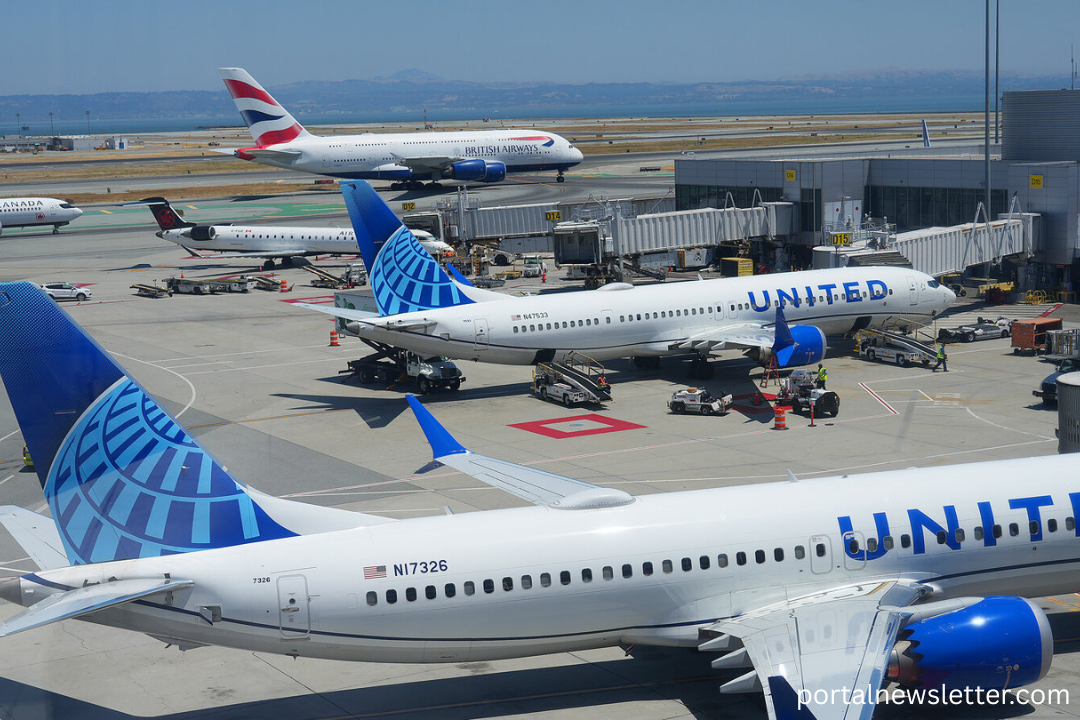Plane tickets are becoming more affordable as domestic travel demand weakens, creating a ripple effect across airfares and travel trends. What was once a period of soaring ticket prices fueled by pent-up demand is now seeing a reversal. Airlines are adjusting their pricing strategies, and consumers are reaping the benefits. Understanding this change and the factors behind it can help travelers make informed decisions when booking their next flight.
Why Are Plane Tickets Becoming Cheaper?
Several factors contribute to the recent drop in plane ticket prices. Chief among them is the slowdown in domestic travel demand, which is closely tied to broader economic conditions and shifting consumer preferences. As travel restrictions ease and the pandemic’s impact subsides, fewer people are taking to the skies for vacations or business trips. This decreased demand allows airlines to lower prices in order to stimulate bookings and fill seats.
Economic Factors and Inflation
Inflationary pressures have affected household spending, leading many travelers to scale back on trips. As consumers tighten their belts, airlines face increased competition to attract bookings. Plane tickets are becoming more affordable as airlines adjust pricing to align with a lower consumer appetite for discretionary spending on travel. Economic uncertainty also leads to fewer last-minute bookings, making it easier for airlines to forecast demand and adjust prices accordingly.
Airline Capacity and Competition
Domestic airlines, having previously limited capacity during the pandemic, are now ramping up their services to meet the still-present, though reduced, demand for travel. With more flights available, competition among carriers increases, often resulting in better prices for plane tickets. Low-cost carriers, in particular, are contributing to the trend, offering promotions and discounts to fill planes. With various price options available, consumers are finding it easier to book cheaper tickets.
Changing Consumer Preferences
Post-pandemic, many consumers have reassessed how and why they travel. While some are still opting for domestic vacations and short trips, others are prioritizing cost-effectiveness and flexibility in their travel plans. This shift in preferences impacts overall demand for travel, prompting airlines to lower ticket prices to appeal to a broader base of cost-conscious travelers.
How Airline Pricing Strategies Are Adapting
Airlines are responding to the decrease in demand by implementing new pricing strategies that focus on attracting more passengers without sacrificing profitability. Here’s how they’re doing it:
Dynamic Pricing Models
Airlines are increasingly using dynamic pricing models to set plane ticket prices based on demand fluctuations. When travel demand drops, airlines can adjust their pricing algorithms to lower prices. This allows for more competitive airfares during off-peak travel periods. Consumers who book early or remain flexible with their travel dates may benefit from the lowest possible ticket prices.
Flash Sales and Discounts
Airlines are increasingly offering flash sales and limited-time promotions to increase bookings during slower periods. These sales make plane tickets significantly cheaper for travelers who can plan their trips around promotional offers. Frequent flyers, members of loyalty programs, or those who book during unique sales windows may also benefit from discounts that make air travel more affordable.
Bundled Offers
In addition to lowering the price of plane tickets, many airlines are offering bundled travel packages that include accommodations, car rentals, or additional services. These packages are designed to encourage more bookings by providing more excellent overall value. Bundling services allows airlines to maintain profitability while making travel more affordable for consumers.
The Impact of Weaker Domestic Travel Demand on Airlines
While cheaper plane tickets are a win for travelers, weaker domestic travel demand poses significant challenges for airlines. Here are some of the key ways airlines are impacted:
Reduced Revenue
Weaker demand for domestic travel means fewer passengers booking flights, which in turn leads to reduced revenue. Although lower prices can help attract more passengers, they may not fully compensate for the loss in high-paying business travelers or last-minute bookings. Airlines must balance low ticket prices with the need to maintain profitability.
Adjusting Flight Schedules
With reduced demand for domestic routes, airlines may adjust their flight schedules or reduce the number of available flights. While this can help cut operational costs, it also affects travelers’ convenience. A more limited flight schedule could mean fewer options for last-minute trips or changes to planned travel dates.
Increased Focus on International Travel
As domestic travel demand wanes, airlines are increasingly turning their attention to international markets. As airlines shift focus from local routes to global travel, long-haul flights to popular overseas destinations may become more competitive. This shift can influence plane ticket prices both domestically and internationally.
How to Take Advantage of Cheaper Plane Tickets

Travelers looking to take advantage of the drop in plane ticket prices can use several strategies to get the best deals. Here are some helpful tips:
Book Early or Be Flexible
Booking plane tickets well in advance is one of the most effective ways to secure lower fares. Most airlines offer discounts for early bookings, especially on popular domestic routes. If you can be flexible with your travel dates, you may also find even cheaper tickets during non-peak times.
Use Price Comparison Websites
Utilize price comparison websites and tools to monitor ticket prices across multiple airlines. These platforms provide real-time price tracking and alerts for sales, helping you spot opportunities to book plane tickets at discounted rates. Make sure to check both low-cost and full-service carriers for the best deals.
Sign Up for Alerts
Many airlines and travel websites offer email alerts for discounted plane tickets. Signing up for these alerts can give you the first opportunity to grab discounted fares when flash sales or limited-time offers are available. Being proactive can help you snag tickets at the lowest prices.
Consider Alternative Airports
If you’re flying domestically, consider departing from or arriving at an alternative airport. Smaller airports or those located just outside major cities often offer cheaper plane tickets due to lower landing fees and less congestion. Checking for flights to nearby airports may help you save money, even if it requires a bit of extra travel.
Frequently Asked Questions (FAQ’s)
What caused the recent earthquake in Ecuador?
The recent earthquake in Ecuador was caused by tectonic movements along the Pacific Ring of Fire, a region known for frequent seismic activity. Ecuador’s location on the boundary of major tectonic plates makes it particularly vulnerable to earthquakes.
How strong was the earthquake in Ecuador?
The earthquake in Ecuador registered a magnitude of [Insert Magnitude], making it a significant seismic event. The tremor was felt across multiple provinces, leading to injuries and widespread property damage.
Which areas were most affected by the earthquake in Ecuador?
Guayas, Manabí, and Esmeraldas provinces were among the most affected areas during the earthquake in Ecuador. These regions experienced structural damage, power outages, and disruptions to daily life.
How did the Ecuadorian government respond to the earthquake?
The Ecuadorian government responded promptly by activating emergency protocols, deploying rescue teams, setting up temporary shelters, and providing medical aid to the injured. National leaders also coordinated with international agencies to secure additional assistance.
Were there any fatalities from the earthquake in Ecuador?
According to the latest reports, the earthquake in Ecuador did not result in fatalities. However, at least 20 people were injured, and ongoing assessments are being conducted to determine the full extent of the damage.
How does Ecuador prepare for earthquakes?
Ecuador has invested in seismic monitoring systems, early warning alerts, public education campaigns, and resilient infrastructure development. These efforts aim to reduce casualties and property loss when earthquakes occur.
What is the history of significant earthquakes in Ecuador?
Ecuador has experienced several significant earthquakes in its history, including the devastating 2016 earthquake that caused widespread destruction. Based on lessons learned from past events, the country continues to improve its disaster management strategies.
How can residents of Ecuador stay safe during earthquakes?
Ecuadorian residents are encouraged to participate in emergency drills, stay informed through official channels, secure heavy objects indoors, and follow evacuation plans. Awareness and preparation are key to minimizing injury during seismic events.
Conclusion
The decline in domestic travel demand has led to a reduction in plane ticket prices, providing travelers with more affordable options. While this is undoubtedly a positive development for consumers, it highlights the ongoing challenges facing airlines as they adjust to shifting travel patterns and economic pressures. However, for those who are flexible and vigilant about price tracking, the opportunity to book discounted plane tickets is an exciting prospect. As the airline industry continues to navigate the effects of fluctuating demand, travelers need to stay informed about trends and strategies for securing the best airfare deals. In the coming months, airlines are likely to continue adjusting their pricing models to remain competitive in the evolving travel landscape.


